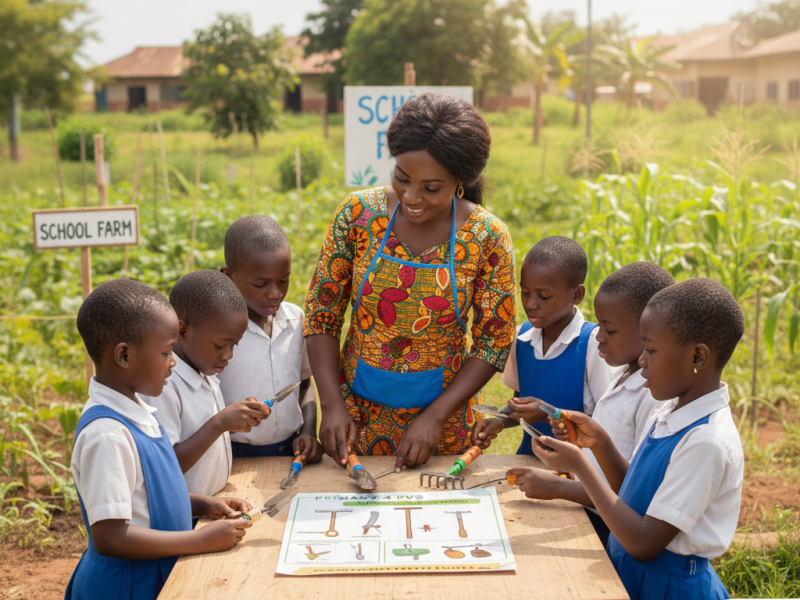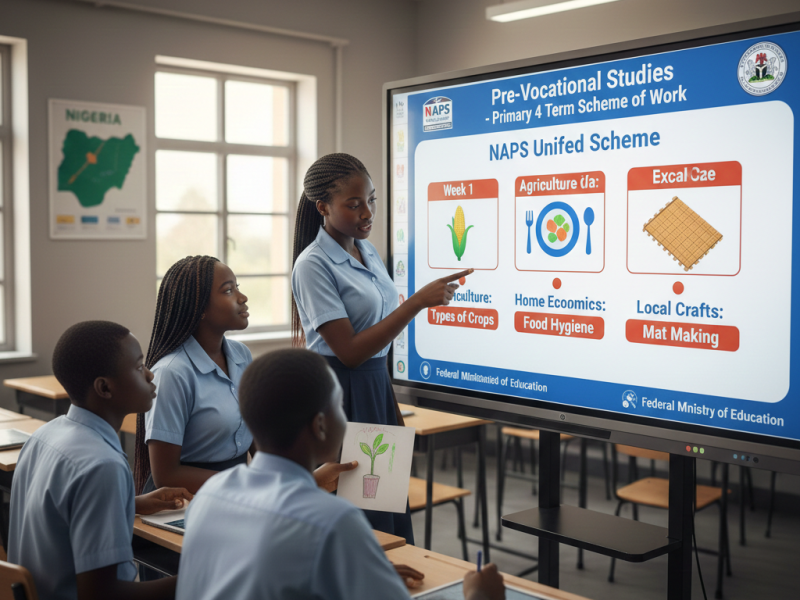Every society thrives because of the combined efforts of different professions. Yet, one debate has stood the test of time: Are teachers better than farmers, or are farmers more important than teachers?
While both play critical roles in shaping human existence, the question often sparks arguments in classrooms, debate competitions, and even community discussions.
In this post, we’ll look at both sides of the argument, highlight their importance, and offer a balanced conclusion.

Why Teachers Are Considered Better Than Farmers
Teachers are often called nation-builders because they shape the minds of future leaders, scientists, doctors, and even farmers themselves.
Without teachers, education would collapse, and innovation would stall.
- Knowledge and Development: Teachers provide the foundation of knowledge that drives progress in every field.
- Nation Building: A strong education system helps a country grow socially, politically, and economically.
- Influence Across Generations: From philosophers like Aristotle to modern-day educators, teachers have shaped civilizations.
In essence, teachers empower people with wisdom and guidance, making them a cornerstone of society.
Why Farmers Are Considered Better Than Teachers
On the other side, farmers are the backbone of human survival. Without food, no profession, including teaching can exist.
- Food Security: Farmers ensure that nations are fed. Without them, hunger would cripple societies.
- Economic Importance: Agriculture is one of the largest contributors to global economies, especially in developing countries.
- Cultural and Social Value: Farming sustains traditions, lifestyles, and communities across the world.
In simple terms, no matter how educated a society becomes, it cannot survive without the food farmers provide.
Quotes on Teachers and Farmers
- “A teacher shapes a nation; a farmer feeds a nation.”
- “Without farmers, there is no food. Without teachers, there is no knowledge.”
- “Farmers provide bread for the body, teachers provide bread for the mind.”
In the vast expanse of human civilization, there exists a poetic debate: Debate on Teachers Are Better Than Farmers.
This question isn’t just a comparison of professions; it’s an exploration of the very pillars that uphold society.
Both roles, profound and noble, contribute uniquely to our collective existence, intertwining the nourishment of the mind with the sustenance of the body.

Historical Perspective
From the dawn of civilization, teachers have been venerated as the beacons of knowledge.
In the ancient shadows of Socrates and Confucius, educators have illuminated paths of wisdom, nurturing the intellectual and moral growth of societies.
However, even before philosophers gazed at the stars, it was the farmers who toiled the earth, laying the foundation of settled life and ensuring the survival of communities.
Societal Roles
Educators are the architects of the future, shaping young minds and instilling values that resonate through generations.
They ignite curiosity, foster critical thinking, and cultivate the leaders of tomorrow.
On the other hand, farmers are the lifeblood of survival. Without their relentless work, the world would face hunger, societies would falter, and the progress kindled in classrooms would fade away.
Economic Contributions
Teachers play a pivotal role in economic development by preparing a skilled workforce that drives innovation and growth.
They impart knowledge that fuels industries and nurtures talents that contribute to societal advancement. However, the economic significance of agriculture cannot be understated.
Farming is a multi-billion-dollar industry, providing the essential resources needed for survival and commerce, ensuring economic stability and growth.

Skill Sets and Training
Becoming a teacher requires extensive education and training. Teachers undergo rigorous academic preparation, continuous professional development, and practical experience to effectively impart knowledge and manage classrooms.
Conversely, farming demands a deep understanding of the land, crops, and livestock.
Farmers must master techniques passed down through generations, adapt to technological advancements, and navigate the complexities of agricultural science.
Daily Life and Responsibilities
A teacher’s day is filled with lesson planning, classroom instruction, and student assessments.
They engage with students, fostering a love for learning, and addressing individual educational needs.
Meanwhile, a farmer’s day begins at dawn, involving planting, harvesting, and tending to livestock.
Their responsibilities are vast, requiring physical labor, strategic planning, and a profound connection to the rhythms of nature.
Challenges Faced
Teachers often grapple with issues such as inadequate funding, large class sizes, and evolving educational standards.
They strive to meet diverse student needs while navigating administrative demands and societal expectations.
Farmers face their own set of challenges, including unpredictable weather, market fluctuations, and the pressures of sustainable farming.
Both professions require resilience, adaptability, and a relentless dedication to their craft.
Cultural Impact
Teachers have been immortalized in literature and media as the unsung heroes who inspire change and ignite potential.
They are depicted as guiding lights, shaping the destinies of countless individuals. Farmers, too, hold a cherished place in folklore and traditions.
They are celebrated as the backbone of rural communities, embodying the virtues of hard work, perseverance, and a deep connection to the land.
Technological Advancements
The integration of technology in education has revolutionized teaching methods, providing interactive and personalized learning experiences.
Digital tools and online resources have expanded the horizons of knowledge.
Similarly, agriculture has witnessed remarkable technological innovations, from precision farming and automated machinery to advanced irrigation systems.
These advancements have enhanced productivity, efficiency, and sustainability.

Environmental Impact
Sustainable practices in education, such as eco-friendly school designs and environmental education programs, contribute to a greener future.
Teachers play a role in fostering environmental consciousness among students. In agriculture, sustainable farming practices are essential to preserving the environment.
Farmers adopt methods like crop rotation, organic farming, and conservation techniques to protect natural resources and ensure long-term viability.
Personal Fulfillment
Teaching offers a profound sense of fulfillment, derived from witnessing students’ growth and success.
Educators experience the joy of making a lasting impact on young minds and contributing to societal progress.
Farming, too, brings immense satisfaction. Farmers find joy in the cycles of planting and harvest, the tangible results of their labor, and the knowledge that they are feeding communities.
Public Perception
Society often holds teachers in high regard, recognizing their dedication and the pivotal role they play in shaping future generations.
However, teachers may also face scrutiny and undervaluation in terms of compensation and working conditions.
Farmers, while respected for their hard work and essential contributions, may also confront stereotypes and challenges related to the perceived simplicity of their work.

Global Perspective
Teachers around the world share a common mission of education, yet face unique cultural and systemic challenges.
From urban classrooms to remote villages, educators adapt to diverse contexts and strive to provide quality education.
Similarly, farming practices vary globally, influenced by geography, climate, and cultural traditions.
Farmers across continents share a commitment to feeding their communities and sustaining their land.
Interdependence
The relationship between teachers and farmers is inherently interdependent. Educators rely on the nourishment provided by farmers to maintain their health and well-being, enabling them to perform their duties.
Conversely, farmers depend on education to improve agricultural techniques, understand market trends, and adopt sustainable practices.
This symbiotic relationship highlights the interconnectedness of all societal roles.
Balanced Comparison Between Teachers and Farmers
Instead of debating who is better, it’s wiser to see how both professions are interconnected.
Farmers sustain life, while teachers give that life purpose and direction.
Teachers need farmers to survive, while farmers need teachers to learn better farming techniques and improve production.
Both are essential pillars, remove one, and society crumbles.
Conclusion on Debate on Teachers Are Better Than Farmers
The debate on whether teachers are better than farmers has no simple answer.
While teachers shape knowledge and guide societies forward, farmers ensure our very survival by putting food on the table.
Instead of ranking them, we should acknowledge their interdependence.
Both professions are indispensable pillars of humanity, and a society that values both will always flourish.
In the grand debate of whether teachers are better than farmers, it becomes evident that both professions are indispensable.
They represent two sides of the same coin, each contributing uniquely to the fabric of society.
Teachers nurture the mind, fostering intellectual and moral growth, while farmers sustain the body, ensuring physical well-being and economic stability.
Rather than choosing one over the other, we must recognize and celebrate the harmonious balance they create, acknowledging that our world thrives on the dedication and contributions of both.
FAQs on Debate on Teachers Are Better Than Farmers
1. Who contributes more to society: teacher or farmer?
Both contribute in different ways; teachers drive knowledge and innovation, while farmers ensure survival.
2. Can a country survive without teachers or farmers?
A country without farmers would starve. A country without teachers would stagnate intellectually. Both are crucial.
3. Which profession is more respected historically?
In ancient societies, farmers and teachers (often philosophers or sages) were both revered for their essential roles.
4. Why are teachers considered important in society?
Teachers play a crucial role in shaping young minds, fostering critical thinking, and preparing students for future challenges.
They inspire and guide individuals, contributing to societal progress.
5. What are some challenges farmers face today?
Farmers encounter issues such as climate change, market volatility, access to resources, and the need for sustainable practices. These challenges require adaptability and innovative solutions.
6. How do technological advancements benefit teachers and farmers?
Technology enhances teaching through digital tools, interactive learning, and online resources. For farmers, advancements in machinery, precision farming, and irrigation improve efficiency and productivity.
7. What is the economic impact of teachers and farmers?
Teachers contribute to economic growth by educating a skilled workforce, while farmers ensure food security and provide raw materials, both essential for economic stability and development.
8. How do teachers and farmers rely on each other?
Teachers depend on farmers for nourishment and well-being, while farmers rely on education to improve agricultural practices and adapt to market trends, highlighting their interdependent relationship.

